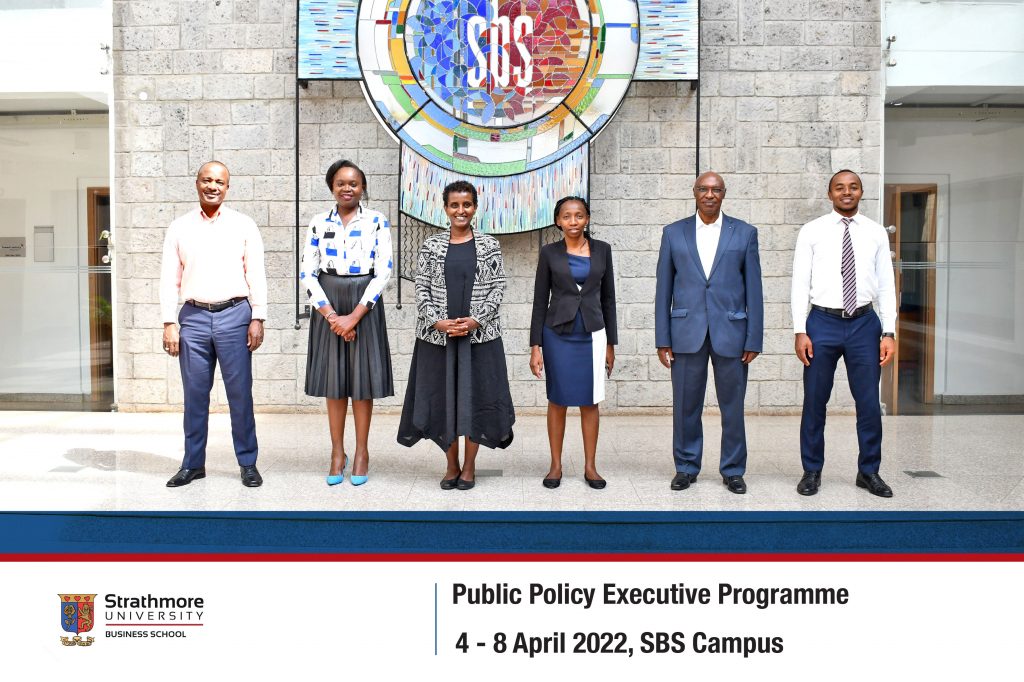Last week, Strathmore University Business School held a five-day hybrid session on public policy administration. The session was aimed at equipping learners with a management understanding of effective implementation of fair equitable policies that keep the people’s best interests top of mind throughout the public policy process.
Public policy may be considered by many as the bedrock of a functional state, formulated and implemented to ensure a society’s resources are well utilized for the greater good. This guarantees stability and reassurance that the systems we uphold function seamlessly, for the most part creating socio-economic prosperity in a country.
In Africa, this is far from the reality. In the worst case, many countries on the continent find it increasingly difficult to grasp the fundamentals of public policy, leading to a complete failure and collapse of the state. On the other hand, where there seems to be a semblance of functionality, governments fail to implement crucial programs and initiatives formulated and adopted through the public policy process, primarily due to malpractice and corruption.
Learners of the Public Policy Executive Programme are taken through the public policy process step by step from problem identification to policy evaluation. As part of Strathmore University’s wider mission of developing great African leaders, we understand the importance of public policy management and the role that our leaders play at all levels, in both public and private sectors, in ensuring successful implementation and evaluation of said policies.
The Programme is designed to help learners appreciate that the public policy process is a collaborative effort between the government and the people, which means that all stakeholders set to benefit from a policy be engaged and consulted before proceeding to solve a problem. Stakeholder analysis allows lawmakers to see the bigger picture and refrain from leaving people out of the decision making process. Without this, there would be no basis for adoption, completely stopping the process in its tracks. Learners use case studies to dissect the mistakes made by regimes attempting to uproot systems that have been upheld for decades without the role of public participation, completely neglecting the adoption process.
Perhaps the most insidious impediment to successful policy implementation, corruption stood out as a bane to remedy if the continent is to progress and successfully administer laws that serve to benefit the people. At the heart of public policy is the rule of law – public policy makes it so that stolen goods cannot be purchased in the free market, or that the authorities are a source of safety and sanity in a nation. Ironically, this is not the case in many instances, with corruption plaguing institutions, disenfranchising the very people authorities have been tasked to serve and protect. The programme takes a deep dive into this matter, deconstructing the far reaching consequences brought about by corruption.
In an ideal world, as a collective, we all aspire towards the same things. However, rundown decision making processes have divided us, creating a rift and mistrust towards policy makers. Although a utilitarian perspective could be argued for the sake of policy implementation, even the greatest good for the greatest number is not an outlook often favoured by policy makers. This programme encourages leaders to create fairness for all through inclusive policy implementation.
Learn more about the Public Policy Executive Programme here
Article by Katherine Keango
Would you like to share an article? Write to us at sbscommunication@strathmore.edu
Share This Story, Choose Your Platform!
Your journey to business excellence starts here. Subscribe today and be at the forefront of innovation and leadership.









